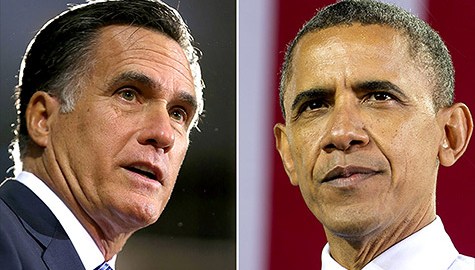The Election as a Constitutional Lesson

A good thing about ELECTIONS is that they remind us we have a CONSTITUTION. They especially remind us that we’re a really, really constitutional people.
Lots of Americans really hate the president and think he’s a dangerous “progressive” menace. And lots of Americans hate Romney and think he’s a warmonger that will even wage war on OUR women. But no Americans are talking about taking it to the streets if the election goes the wrong way. This time, they’re not even bragging that they might move to Canada (which they never do in significant numbers). When the Constitution speaks, we listen.
In 2000, when the Supreme Court spoke concerning the outcome of election, Al Gore listened, even though he thought (perhaps with some reason) that the Court’s argument was baloney and in general he was robbed.
Americans are okay when the “popular vote” goes one way and the electoral vote the other. That’s because the Constitution says the president and vice president are elected by the electors selected by the states.
This time, all the experts say that Obama has a far better than even chance to win the electoral vote (although it really ain’t the 80+% chance Nate Silver talks about—see the newspaper polls from OH and PA that just came out). But who knows about the popular vote? All the polls show a tie.
There is, under the Constitution, no national popular vote. Journalists and such add up the popular votes from the states. They’re free to do that, but there’s nothing official about it. We have fifty state elections for electors, and that’s all.
President George W. Bush, when asked whether he was bothered that he had (very narrowly) lost the popular vote, said, with rare lucidity, that he wasn’t going for a popular vote victory. He had focused his campaign on the close, battleground states. If the popular vote made a real difference, he would have focused on running up huge margins in his best states, beginning with Texas.
President Obama may end up, with good reason, saying the same thing. He’s not wasting any face time or media money or even much organizational energy in his best states, beginning maybe with New York. He’s spending his time and treasure (as is Romney) scratching everywhere for a few extra votes in the relatively few battleground states.
Perhaps the best argument for abolishing the “electoral college” is that the incentive to vote in the non-battleground states is undermined. A citizen of Utah, for example, knows that it makes no difference whether Romney gets 57% or 70% of the vote in his state. Either way, he’s getting all the electoral vote. (There are plenty of reasons for keeping the electoral college, but I’ll save them for another time.)
If the campaigns were directed toward the national popular vote, the result would be different. It’s true it wouldn’t be a lot different. But it would be different enough that the winner of a close election can say that it’s really misleading to claim that the other guy was the people’s real favorite.
So many conservatives might criticize me for giving an argument that might energize, if only a very little, Obama’s second term. But it’s still possible that Romney might win the electoral vote and lose the popular vote (look at those OH and PA polls again). And surely I should want to help our president, whoever he or she is, have the “energy” (to use the Federalist‘s term) to govern effectively.
Let me conclude, to be fair and balanced, with a constitutional argument for voting for Romney. The dumbest amendment to our Constitution still in force is the 22nd Amendment, the one that basically limits the president to two terms. According to the Federalist, what makes the president safely accountable to the people is a combination of due responsibility and periodic elections.
The president who can’t run for reelection is now too tempted to act outside constitutional limitations, because he can’t get another term no matter what he does. And he isn’t able to turn to the people to vindicate his claims about what he done on their behalf. He can’t turn to the people as a source of energy.
Consider: Most second terms have been really screwed up (or at least worse than the president’s first term) since the 22nd Amendment: Nixon, Reagan, Clinton, Bush the younger. Even the competent Eisenhower’s second term was really short on energy.
So if you are really one of the very, very few Americans who hasn’t decided who to vote for yet: Maybe a Romney first term holds greater promise than an Obama second term. I’d be for amending the Constitution to take out the amendment that makes me able to say that. But let’s respect the Constitution as it now is.





